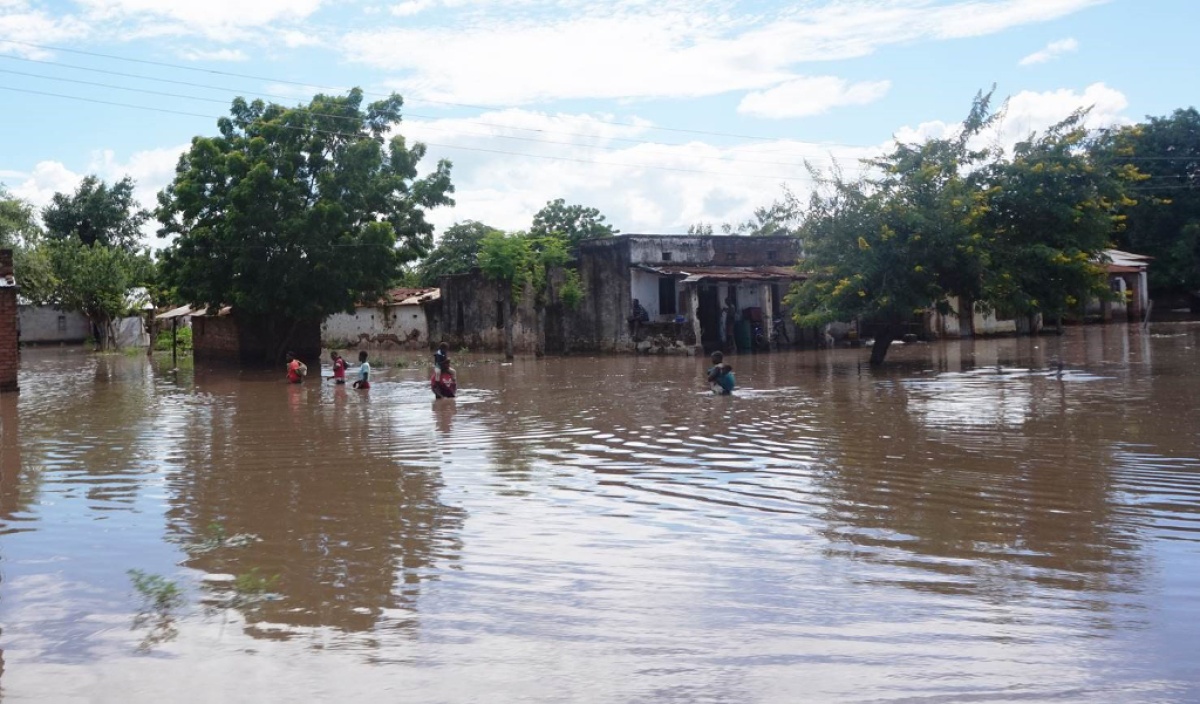PIH Expands Emergency Response as Malawi Flooding Intensifies
Posted on Mar 4, 2015

As rainy season continues across Malawi, the already-historic flooding has reached a new peak, leaving a path of destruction in its wake. Abwenzi Pa Za Umoyo, PIH’s Malawian sister organization, immediately responded with a weekly mobile clinic in its home, Neno District. In February, PIH/APZU expanded its flood relief efforts to the nearby district of Chikwawa, marking the first time the organization has provided care outside of Neno.
Chikwawa sits in southern Malawi, in floodplains of the Shire River, and is among Malawi’s poorest and most food-insecure districts. Chikwawa was one of the 15 districts declared to be a disaster zone after heavy rains in January, and a new storm system last week has exacerbated the situation. There are about 20 displacement camps in the district.

PIH/APZU’s efforts are based in the town of Nchalo, where there are three camps for displaced families: Sekeni 1, Sekeni 2, and Jombo. At the peak of the flooding, the three camps together housed about 9,600 people, with some families coming from villages as far as 14 kilometers (about 8.5 miles) away—a two-hour walk. Nearly 69,000 people live in Nchalo. In the past few weeks, families had started going home, but many have returned to the camps amid the resurgent flooding. In one nearby village, the chief estimated that 80 percent of homes had been destroyed.
At the core of PIH/APZU’s efforts is a clinic established with consultation from the Ministry of Health and operated by PIH/APZU staff. A clinical officer, two nurses, and a pharmacist staff the clinic. They see about 250 people from both the camps and the town each day, with most patients presenting with malaria, diarrhea, skin and eye conditions, and respiratory infections. Clinicians are also screening for HIV and tuberculosis, and are providing pregnancy tests and antenatal care.
PIH/APZU is also addressing hygiene and sanitation concerns, as flooding is especially detrimental to environmental health systems. The camps have access to clean drinking water, but for weeks people were bathing in a nearby canal that had been polluted with sewage. PIH/APZU responded by building bathing facilities and educating residents on ways to prevent the spread of diarrheal diseases. In that same vein, the team is monitoring infectious diseases such as cholera and typhoid by visiting and mapping surrounding villages. If a community suspects a case, they know to call PIH/APZU so the patient can be treated and transmission can be prevented.
The devastation in these communities will far outlast the rains.
As with all of PIH/APZU’s programs, community outreach is integrated at every step. The response team includes a community liaison who visits the camps each day to survey emerging needs and coordinate programming with local leaders and other nongovernmental organizations. This approach builds trust between PIH/APZU and the camp leaders, who know they can count on the response team for assistance. One night, camp leaders called at 1 a.m. to request care for a severely ill elderly woman; she had malaria and diarrhea and was very dehydrated. The team visited the patient right away to administer intravenous fluids, malaria treatment, and antibiotics.
PIH/APZU has committed to providing emergency relief in Chikwawa for the next six months. The team is making headway, but the challenges are many. The 20 displacement camps in the district are spread out, and there simply isn’t enough staff or transportation to provide relief to them all.
The most significant challenges, however, will be in the long term.
“The devastation in these communities will far outlast the rains,” said Dr. Emily Wroe, PIH/APZU’s director of clinical services.
Even once the floodwaters recede, many families will be left without housing, without latrines, without many of their possessions, and without their recently planted crops. Because the floods hit a population that was already so vulnerable, replacing these resources and rebuilding infrastructure will require significant investment.
Go here to support PIH/APZU's work in Malawi.

